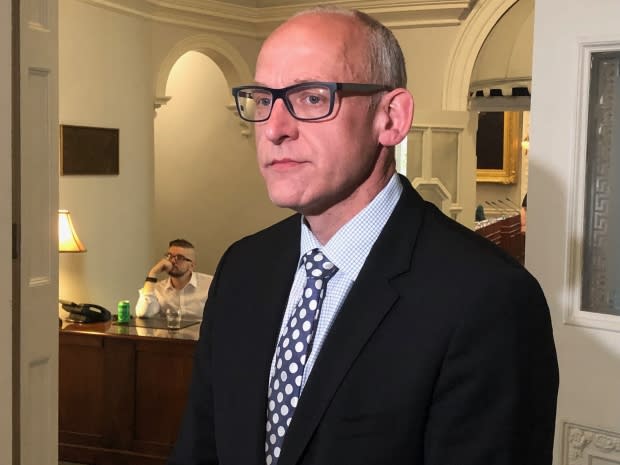Halifax surgeon warns a 'tsunami' of health needs is coming
A Halifax surgeon called before a provincial health committee to speak about improvements to hip and knee surgery wait times ended up delivering a mostly dire message on Tuesday.
"There's no jurisdiction in the Western world that's gonna be able to afford the tsunami that's coming," Michael Dunbar told the all-party standing committee on health.
That mammoth wave, according to Dunbar, was the need for the health services currently available and the demand that will soon outstrip it.
Speaking to reporters following his testimony, the surgeon called on politicians to be more open about the need to re-evaluate where limited tax dollars should go.
"People need to stand up in front of the public and start to talk about this," said Dunbar.
A warning
"There is no jurisdiction that's ready for the wave that's coming, the tsunami wave, if we're to provide all these resources to everybody that's coming."
He said the current health-care model is barely sustainable, which necessitates discussing where to invest money.
Dunbar said the focus should be on helping young children lead healthier lives so they grow up to be healthier adults.

"This is the most important, cost-effective investment we can make to reduce those [health-care costs]," Dunbar told the committee.
Regarding hip and knee surgery wait times, Marcy Saxe-Braithwaite, senior director of surgical services at the Nova Scotia Health Authority, provided some good news. She told the committee that based on numbers she's been tracking for a year now, there are successes.
"Our infection rates are down, our length of stay [in hospital] is down," she told reporters following the meeting. "We have decreased the amount of blood transfusions we use for the patients post-op."
'Trending in the right way'
"I think they're all trending in the right way. We've brought everything down."
But Saxe-Braithwaite also told the committee the province would miss the 2020 hip or knee replacement target it set for itself just two years ago to meet the national 182-day benchmark. She said a new target would not be set until at least the fall.
"I think we were really ambitious when we were looking at the date and things don't always work out as you planned," Saxe-Braithwaite said.
She blamed the inability to meet the target on factors including:
Not having enough beds for surgical patients.
Some patients cancelling their operations.
Trauma patients taking precedence over elective surgeries.
MORE TOP STORIES

